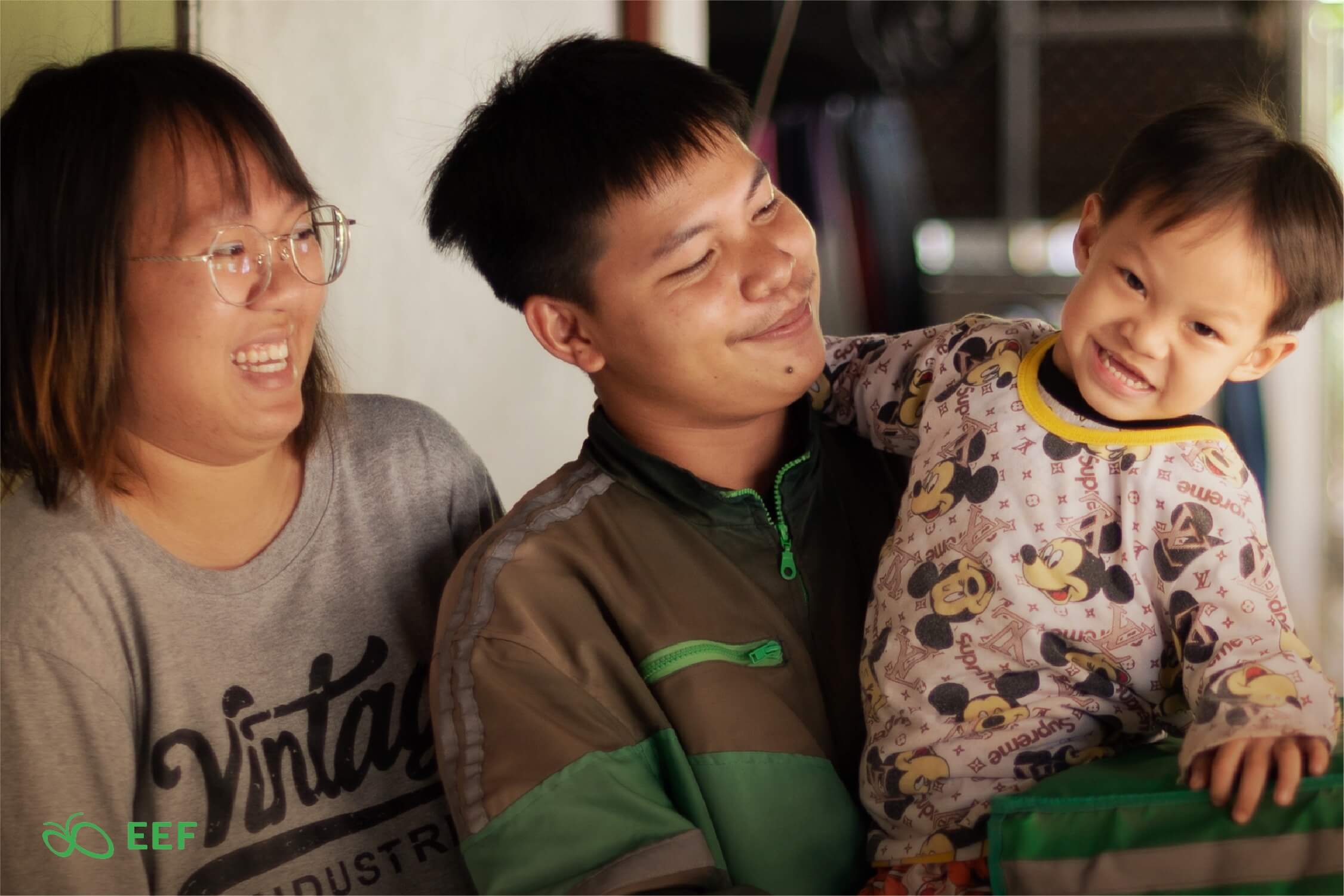Amplifying the Voices of Students with Special Needs regarding government policies on “Reduce Inequality by Supporting Everyone’s Access to Opportunities.”
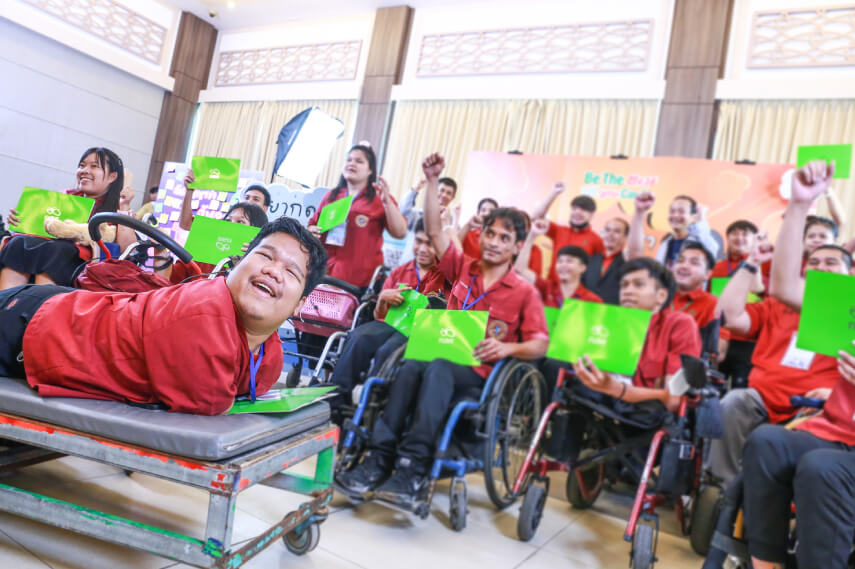
According to the 2017 Disability Survey Report from the National Statistical Office, conducted every five years, an estimated 3.7 million individuals in Thailand, comprising 5.5 percent of the total population, have disabilities. Contrasting this data, a report from the Ministry of Social Development and Human Security (MSD) as of March 31, 2023, indicates that 2,180,178 individuals possess disability identification cards, representing 3.18 percent of the population. This suggests that over half of people with disabilities are unregistered, thereby lacking access to living allowances.
The findings of a comprehensive survey on societal integration revealed that individuals with disabilities, or “people with special needs,” in Thailand encounter various challenges. These include insufficient income, a scarcity of specialized caregivers, a lack of essential tools and equipment, inadequate housing conditions, limited occupational opportunities, and educational deficiencies. Among the 2.1 million registered individuals with disabilities under the MSD, 855,816 fall within the working age bracket (15-59 years old), comprising 40.71 percent of this demographic, with 63.87 percent having only completed primary school education.
During the 2023 election campaigns, numerous political parties advocated for policies regarding “state welfare for the disabled,” with a primary emphasis on increasing living allowances. While this remains a key agenda item, discussions regarding policy development for individuals with disabilities encompass augmenting employment opportunities, providing caregiver support, enhancing community infrastructure, and prioritizing educational assistance.
To advocate for reducing educational disparities and enhancing employment prospects for individuals with disabilities, the Fund for Educational Equality (EEF) Thailand urges stakeholders to heed the perspectives of graduates from the Advanced Vocational Innovation Scholarship Program and their parents. These young adults, poised to enter the workforce, offer insights into pertinent issues. By fostering a policy framework that fosters “opportunities” to access “rights,” Thailand can aspire to become an inclusive space that embodies “equality” for all its citizens.
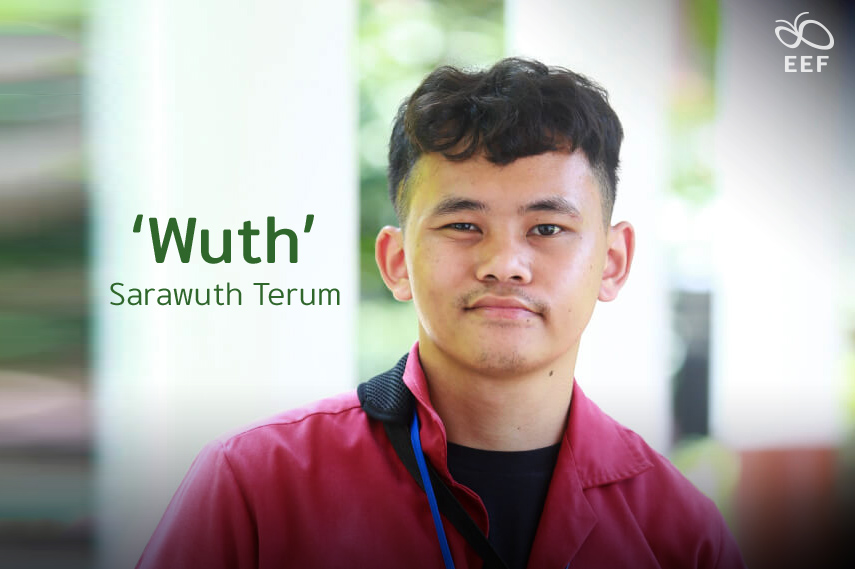
“I wish there was a Career Startup Fund.”
‘Wuth’ or Sarawuth Terum, a graduate of the high vocational program in Digital Business Technology from Nongkhai Redemptorist Technological College for people with disabilities under Royal Patronage, explained that he studied Computer Business in the vocational certificate program and worked as a freelancer in graphic design and video editing at the same time. When the college offered high vocational programs, he became interested in furthering his education because of his passion for web development and programming. He believed that the more he learned, the more he could advance and have wider career options.
“If you ask about the necessity or demand, I think updating technology is crucial for those studying in computer or design fields. I want the college to support us in accessing modern tools and constantly updating the curriculum to keep up with changes,” he said.
“If I could reach out to the government, I would like them to consider setting up a career fund that truly helps us, such as loans for business startups. On a larger scale, I would like to see more accessible scholarships for disabled individuals. Although some scholarships cover our tuition up to the bachelor’s degree, many still struggle with living expenses and transportation costs, making it difficult to complete their education. Like many friends, I wanted to study and work simultaneously until I learned about the High Vocational Innovation Scholarship Program by the Equitable Education Fund (EEF) Thailand , which covers comprehensive expenses. Since then, I haven’t had to worry about whether I will be able to graduate or if the time invested is worth it.”
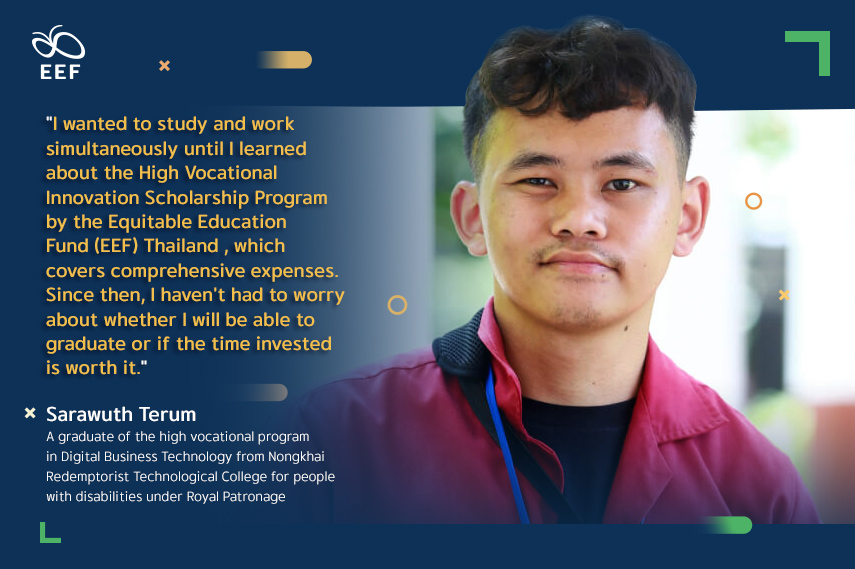
“If we don’t have enough money, we might have to quit our studies halfway, which feels like a waste of time. After graduating, my friends and I plan to start a company to take on projects. So, I think if there is a Career Startup Fund, we would have more opportunities to gain experience and develop further.”
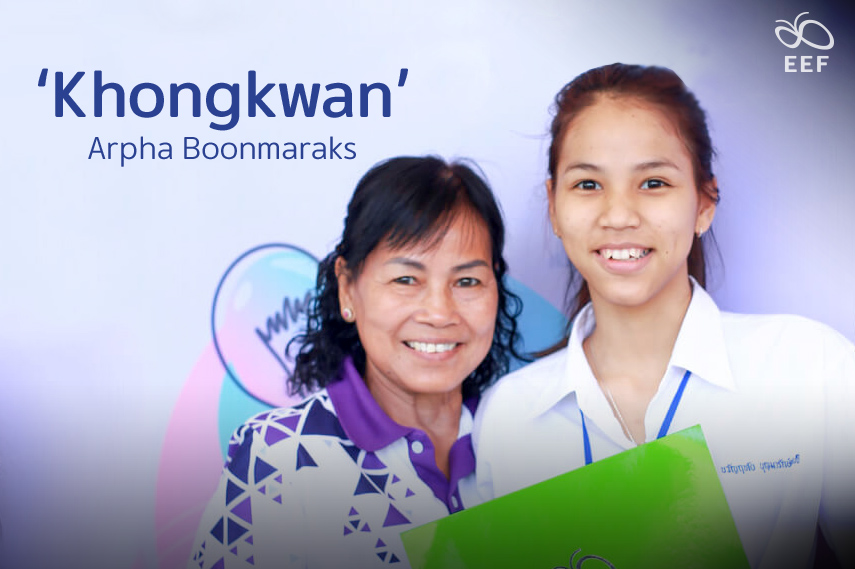
“If there are more facilities in public areas, there will be opportunities to live like everyone else,”
Ms. Arpha Boonmaraks, the guardian of ‘Khongkwan’ from the Digital Business Technology department at Chiang Mai Polytechnic College, expressed a desire for more support for people with special needs. She explained that if the state could nurture and support these individuals to live independently and have opportunities for self-development, it would provide them a place in society without segregation. Hence, they are not solely dependent on others.
“I believe the most important infrastructure includes various public facilities, such as transportation. Suppose it could be made more convenient with wheelchair-accessible services like dedicated wheelchair paths, elevators in necessary areas, and consideration of how these people can use public transport. In that case, they will have more opportunities to travel independently.”
“As a guardian, I just want her to have the chance to live like everyone else. I want my grandchild to be able to go out, learn to take care of herself and be responsible for her own life. We know she has some limitations, but on the other hand, we know that everyone faces some limitations. So, everyone needs the opportunity to learn because one day, when we are not around, she will have to manage independently.”
“How much more budget is needed? The answer is, no matter how much, it will never be enough.”
“In the past, when you talked about welfare for the disabled, topping up the disability allowance was the first consideration, while supporting education was the last. I wish to reverse this perspective, as not all of us need money first.”
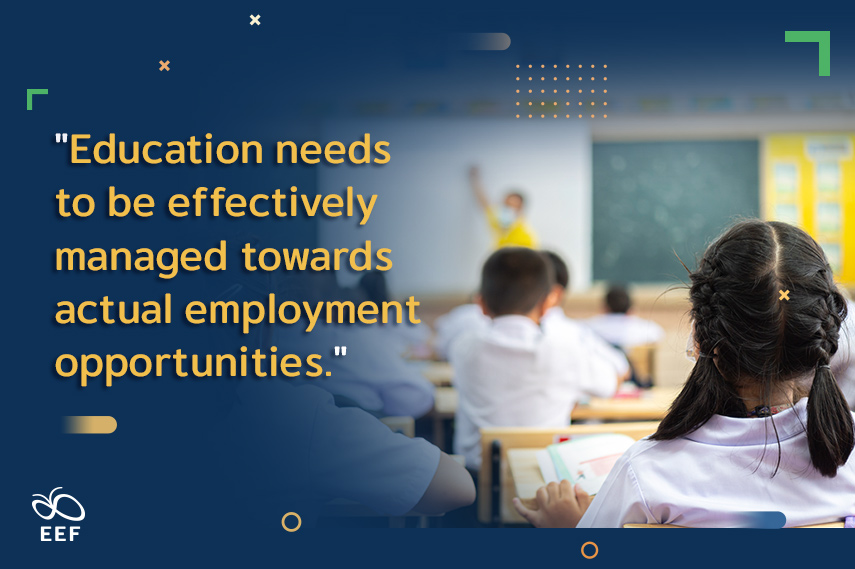
“Education needs to be effectively managed towards actual employment opportunities.”
Ms. Danita Nitiveerakul, the guardian of Maprang, mentioned the educational policy for people with disabilities, stating that it needs to be more inclusive for all types of disabilities and have pathways that lead to actual employment.
“The state must consider an educational management that accommodates various disabilities, as many institutions still have limitations in their admission for disabled people.”
Writer: Rrawis Larha l Media Production Officer
Source: (Innovation Scholarship Program for students with special needs) “Reduce Inequality by Supporting Everyone’s Access to Opportunities” Amplifying the Voices of Students with Special Needs. https://www.eef.or.th/article-260623/
Others Impact Stories
When a School Becomes a Market of Opportunities
When a School Becomes a Market
Learning to Learn Through Play
Learning to Learn Through Play
Life at the end of the tunnel
Life at the end of the




